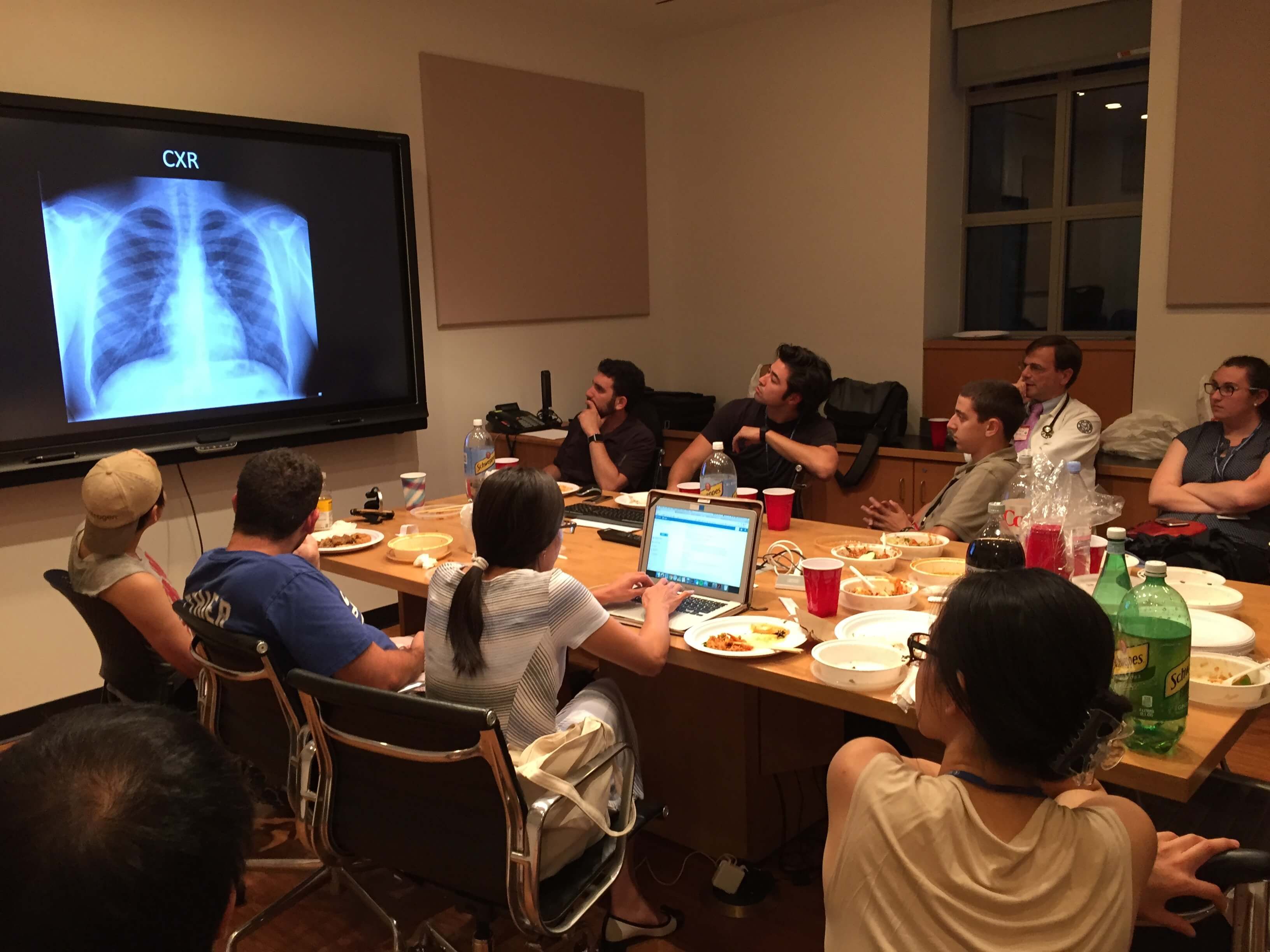The Tri-Institutional MD-PhD Program is committed to reviewing applications holistically, with an emphasis on the applicants' commitment to physician-scientist training as evidenced by letters of recommendation, research experiences, GPA, and other academic and community accomplishments.
Associate Program Director Dr. Mark Pecker, MD runs a series of biweekly clinical case-based seminars for MD-PhD students in their research years. The goal of these seminars is to provide students in their research years the opportunity to further develop their skills in clinical reasoning and thus help them maintain familiarity with clinical medicine.
The Case Discussion Rounds are formatted after a program initially developed by a former Memorial Sloan Kettering faculty member, Bernd Gänsbacher, MD, now emeritus at Technische Universität München (Technical University of Munich).

In each CDR session, one student presents a clinical case to a group of their peers without the group having prior knowledge about the case. The student presenter provides the group with the following information: chief complaint, history of present illness, social history, and findings on physical exam. The group discusses key findings, as they are presented, in their attempts to decipher the etiology of the patient's signs and symptoms.
The group is then charged with asking the student presenter for laboratory tests and providing an explanation for why they are ordering a specific test. The results of the tests are presented and a differential diagnosis is generated. A final diagnosis is proposed after any additional information has been provided. The student presenter then provides some teaching points about the case, and is asked to delineate key questions that remain unresolved regarding the disease at hand, and the implications these questions have for the treatment of patients and for future clinical investigation. This follow-up discussion usually touches on topics at the frontier of biomedical science, befitting the group's focus on becoming future physician-scientists.
The seminar's focus on pathophysiology, and Dr. Pecker's unrelenting emphasis on mechanisms, are key to the success of the Case Discussion Rounds, as Dr. Pecker helps guide the group discussion by focusing and redirecting the (sometimes meandering) line of questioning.
Creative thinking is encouraged and expected!